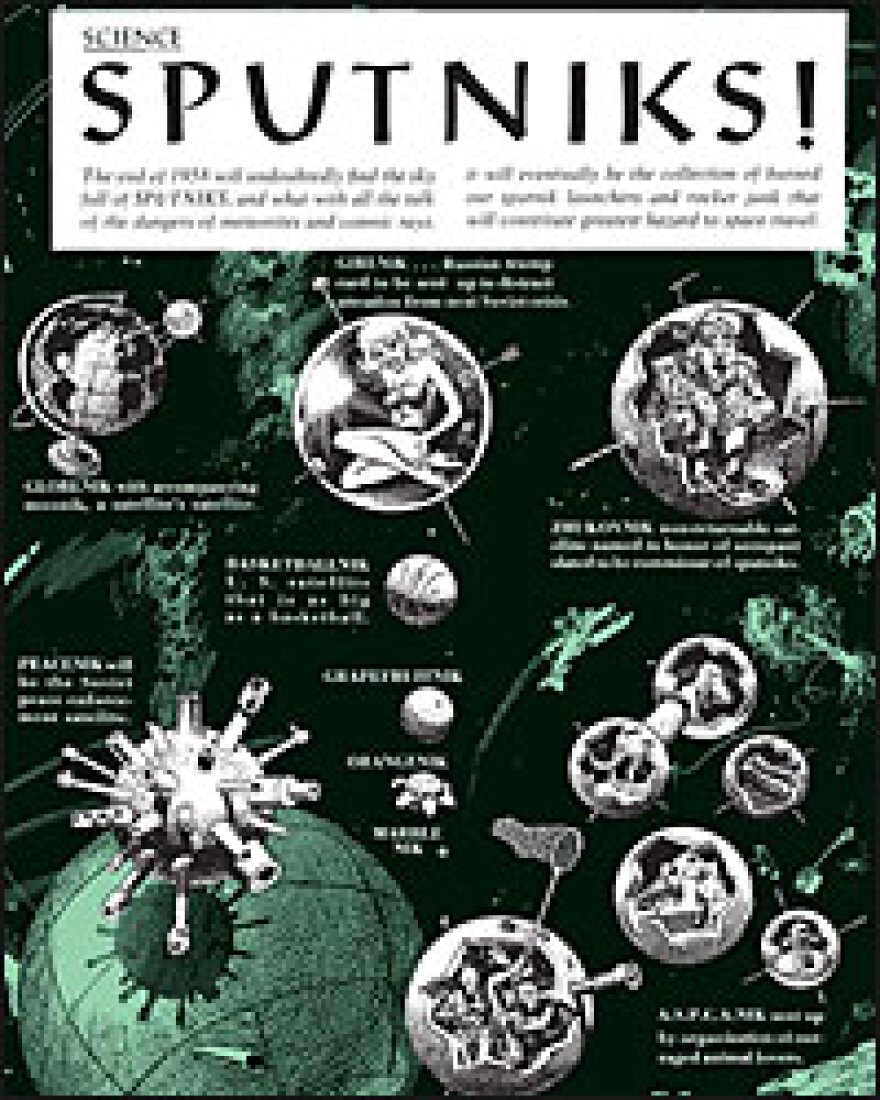


When the great American writer and critic George S. Kaufman penned his famously cutting line, "Satire is what closes on Saturday night," he was referring to the genre's frequent hard luck in the theater. But that blunt assessment could have applied to the short-lived humor magazine Humbug, too. Launched with lofty aspirations in 1957 by Mad founding editor Harvey Kurtzman and a collective of legendary Mad regulars, Humbug lasted only eleven monthly issues — and for its nearly 50 years out of print, it has remained a curiosity in the long tradition of published parody.
Certainly, Fantagraphics, the exemplary Seattle-based archivists of comics and comic-strip history, couldn't have lavished more care in restoring Humbug's yellowing pages had they been original Shakespeare folios. "A project like Humbug comes only once in a lifetime," boasts the two-volume set's intro, which, in this compilation's lone lapse, has the breathless hyperbole of a high school term paper.
Let's, for a second, dispute that Kurtzman and crew weren't "all clearly on creative fire" when they published such flat stuff as their list of "reverse cliches" ("They're making everything much better than they used to") or "excerpts from a southern dictionary" ("LACK — Enjoy, i.e., 'I lack fried chicken' "). They did, more often than not, strive to fulfill Kurtzman's prophetic inaugural-issue vow: "We won't write for morons. We won't do anything just to get laughs. ... We won't be in bad taste. We won't sell magazines."
Like Mad, which Kurtzman created with publisher Bill Gaines in 1952, Humbug took as its ripe targets the cultural phenomena and ephemera of its day. In Humbug's brief run between 1957 and '58, that meant the pervasiveness of television (with parodies like "Peri Coma," "Have Gun You Better Travel"), the permissiveness of movies (a Baby Doll riff called "Doll-Baby"), the absurdities of rampant advertising and such airborne late-decade sensations as Elvis, Sputnik and the Asiatic flu. It prided itself, too, on tackling tonier preoccupations, like literature, science and the media.
In fact, Humbug was at its best when it did the unexpected: a spoof of Old English and science fiction called "The Log of the Solar Hawke"; a collection of classified ads for uppity private schools (Mademoiselle Tapps' Academy of the Dance, the Hackney School of Acting, the Bombastic School of Art); a rhyming Christmas cheer to some of the most loathsome cultural figures of the 1950s, including George "the Mad Bomber" Metesky, famed racists Orval Faubus and John Kasper — even the relatively liberal-minded leader of the Soviet bloc ("Well, here comes Tarzan's best friend, Cheetah/Oops. ... Merry Khruschev, Boss Nikita!").
If a lot of Humbug's humor now tickles the mind more than the funny bone, collected here it serves to fill in the missing piece on a seminal period of satiric shenanigans and to evoke an era when making nose-thumbing comedy was the work of smart alecks in creased slacks, pressed white shirts and skinny ties. It'd make a helluva TV series; you could even call it Mad Men.
Copyright 2023 NPR. To see more, visit https://www.npr.org.


